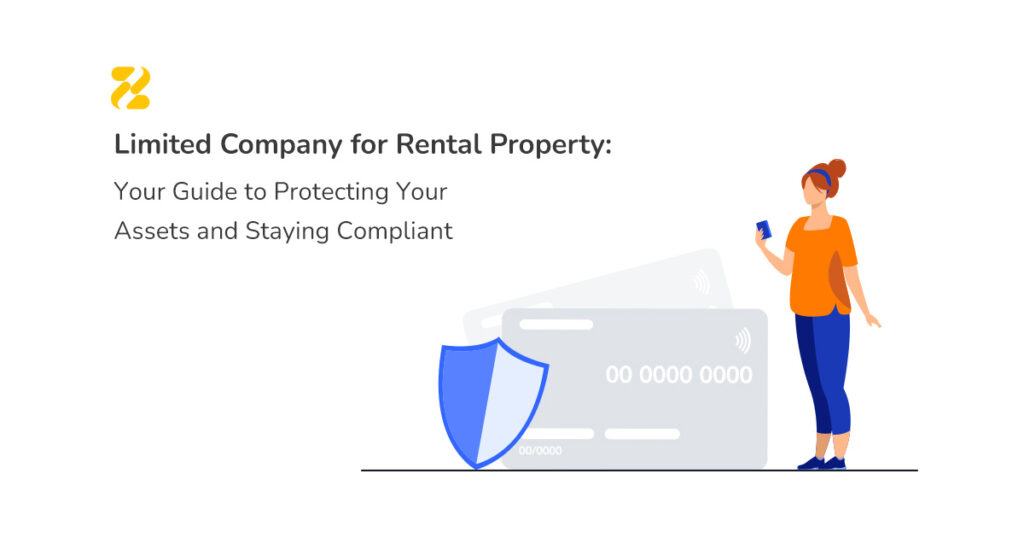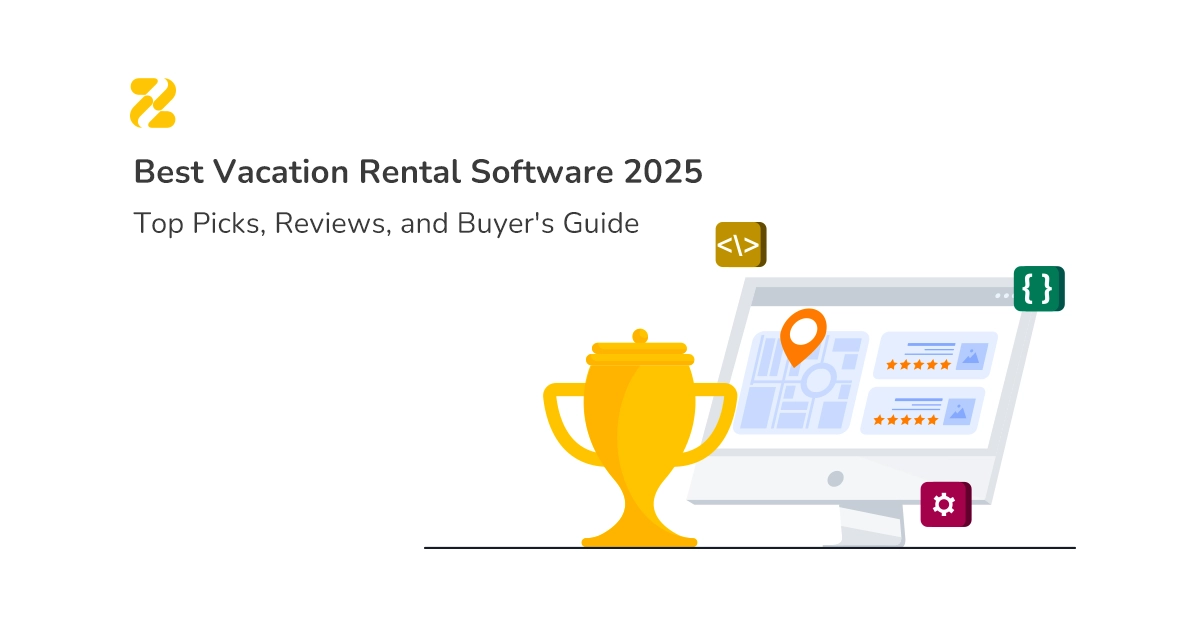If you’re a property manager running long-term rentals or holiday properties like Airbnb in the UK, you’ve probably wondered, “Should I put my rental property in a limited company?” With 74.8% of UK businesses using limited companies, they’re a popular choice for protecting assets and optimising taxes for a limited company for rental property.
Maybe you’ve heard horror stories about lawsuits from tenants or guests, or you’ve read about the tax perks of limited companies. But the idea of setting one up feels daunting – paperwork, legal jargon, and all. Don’t worry, we’ve got you covered.
In this blog post, we’ll answer your top questions about using a limited company for rental property and show you how tools like Zeevou can make managing your rental business a breeze.
Table of Contents
What Is a Limited Company and Why Should Property Managers Care?
Imagine this: A tenant slips on a loose step in your rental property, or a vacation guest claims injury during their Airbnb stay. Without a limited company, your personal assets – like your savings, car, or even your primary home – could be at risk.
A private limited company (Ltd) acts like a shield, separating your personal finances from your rental business. If something goes wrong with your property, the limited company typically limits liability to the business’s assets, keeping your personal wealth safe. Additionally, a business licence for rental property may be required by local councils to ensure compliance with regulations.

Here’s why hosts love limited companies for rental properties:
- Liability Protection: Shields your personal assets from lawsuits or debts tied to the property.
- Tax Flexibility: Limited companies pay Corporation Tax, which can be lower than Income Tax for high-earning property managers, and you can retain profits in the company, aiding rental property tax compliance.
- Professional Image: Operating under a limited company (e.g., “Sunny Rentals Ltd”) looks more legit than using your personal name on agreements.
- Scalability: Makes it easier to manage multiple properties under one business structure.
But let’s be honest– running a limited company for rental property comes with paperwork and compliance tasks. That’s where Property Management Systems like Zeevou come in. Zeevou automates financial reporting, tracks rental income, and calculates profits in real time. So, you can focus on growing your business, not drowning in spreadsheets.
Do You Really Need a Limited Company for Your Rental Property?
Not every property manager needs a limited company, but it’s worth considering. Let’s break it down with a quick story:
Meet James, a property manager in Manchester with two rental properties – one long-term and one Airbnb. He didn’t think he needed a limited company for his rental property until a guest claimed mould issues and threatened a lawsuit. Without a limited company, his personal savings were on the line. After forming a limited company, he slept better knowing his personal assets were protected.
Here’s when a limited company makes sense:
- You own multiple properties: More properties mean more risk. A limited company helps isolate each property’s liabilities.
- You run short-term rentals: Airbnb or Booking.com guests come with higher turnover and legal risks (e.g., property damage). A limited company is a smart move.
- You want peace of mind: Even for a single property, a limited company adds a layer of protection.
If you’re just starting with one low-risk rental, you might skip the limited company to avoid setup costs (typically £12–£100 via Companies House). However, you may still need a business licence for rental property, depending on local council rules. As your portfolio grows, the benefits of both outweigh the hassle.
Zeevou can lighten the load by automating tasks like guest verification, digital agreements, and expense tracking. Its multi-location PMS lets you manage all your properties under one limited company from a single dashboard, saving you time and keeping you compliant.

How to Form a Limited Company for Rental Property: A Step-by-Step Guide
Setting up a limited company for rental property isn’t as complicated as it sounds. Here’s how to do it in six simple steps:
- Choose a Name: Pick a unique name (e.g., “Maple Street Rentals Ltd”). Check Companies House to ensure it’s available.
- Register with Companies House: File your company details with Companies House
- Appoint Directors and Shareholders: Appoint at least one director (this can be you) and define shareholders. You may also need a company secretary, though this is optional.
- Create Articles of Association: This document outlines how your limited company will operate, especially if you have partners. It’s required for Companies House.
- Register for Taxes: Apply for a Unique Taxpayer Reference (UTR) from HMRC for free. This is needed for Corporation Tax and rental property tax compliance.
- Open a Business Bank Account: Keep your limited company’s finances separate from your personal accounts to maintain liability protection and comply with UK regulations.
In addition, you should check with your local council for specific requirements, especially for short-term rentals like Airbnb. Some areas, like London, may require a licence or planning permission for rentals exceeding 90 days annually.
Furthermore, work with an accountant to ensure proper Corporation Tax filings, VAT registration, and compliance with HMRC regulations for rental income.
Once your limited company for rental property is set up, managing it can feel overwhelming. Zeevou’s integration with accounting tools like Xero automates bookkeeping, tracks income and expenses, and generates detailed financial reports. This helps you file accurate Corporation Tax returns with HMRC, ensuring rental property tax compliance without the headache.
Should You Create a Separate Limited Company for Each Property?
This is a significant question for landlords with multiple properties. There are two main approaches:
- One Limited Company per Property: Each property gets its own limited company. If one property faces a lawsuit, the others are protected. This is ideal for high-risk properties but increases paperwork and costs (e.g., multiple Companies House fees).
- One Limited Company for All Properties: Simplifies management and reduces costs but means a lawsuit against one property could affect the others.

Here’s a quick comparison:
| Options | Pros | Cons |
| One Limited Company per Property | Maximum asset protection | Higher costs, more paperwork |
| One Limited Company for All | Lower costs, simpler management | Higher risk if sued |
Consult a solicitor to decide what’s best for your situation.
Ongoing Compliance: Keeping Your Limited Company in Good Standing
Forming a limited company for your rental property is just the start. Staying compliant keeps your liability protection intact. Here’s what you need to do:
- File Annual Confirmation Statements: Submit a Confirmation Statement to Companies House annually (fee £13 online).
- Pay Corporation Tax: Budget for Corporation Tax and other HMRC obligations to maintain rental property tax compliance.
- Keep Finances Separate: Never mix personal and limited company funds. Use a dedicated bank account.
- Use the Limited Company Name Consistently: List your limited company on tenancy agreements, insurance policies, and marketing materials.
- Maintain Articles of Association: Update them as needed, especially with new partners or properties.
- Renew Business Licence for Rental Property: Check local council requirements for renewals or updates to your business licence for rental property, especially for short-term rentals.
Zeevou makes compliance easier by automating tasks like digital agreement signing. It also tracks maintenance and housekeeping schedules to ensure that your properties meet UK health and safety standards.
Taxes and Limited Companies: What You Need to Know
Limited companies are a property manager’s tax-friendly ally, but they come with nuances:
- Single-Director Limited Companies: Pay Corporation Tax (19%–25% as of 2025) on profits. Dividends to directors are taxed separately, often at a lower rate than personal Income Tax.
- Multi-Director Limited Companies: Still pay Corporation Tax, with profits distributed as dividends to directors/shareholders, reported via Self-Assessment.
- Retaining Profits: You can retain profits in the company to defer tax, useful for reinvesting in additional properties.
Important: Always consult a tax adviser to tailor your limited company’s tax strategy to your specific situation.
Financing Challenges: Getting a Mortgage with a Limited Company
Here’s the tricky part: Most UK lenders don’t offer standard residential mortgages to limited companies for letting properties. Why? They see limited companies as riskier than individual borrowers. But there are workarounds:
- Buy in Your Name, Then Transfer: Purchase the property personally, then transfer it to the limited company. Note: This may trigger Stamp Duty Land Tax (SDLT) or a mortgage clause, so consult with your lender first.
- Buy-to-Let (BTL) Lenders: Look for specialist BTL lenders like Paragon or Precise Mortgages. They’re more accommodating to limited companies but may charge higher rates.
- Portfolio Mortgages: Some UK lenders offer BTL portfolio mortgages tailored for property managers, including those with limited companies.
Zeevou’s financial reports can help you present a strong case to lenders by clearly showing your rental income and profit margins.

Using a Limited Company for Short-Term Rentals (Airbnb, Booking.com)
Short-term rentals like Airbnb and Booking.com come with unique risks – such as property damage, guest injuries, or local planning restrictions (e.g., London’s 90-day rule). A limited company for rental property is a smart way to protect yourself. Here’s what to consider:
- Check Local Laws: Some UK councils require planning permission or licences for short-term lets. Ensure your limited company for rental property complies.
- Secure Insurance: Obtain landlord insurance and general liability coverage in the limited company’s name.
- Automate Compliance: Use Zeevou’s guest verification and digital agreement tools to ensure compliance with UK regulations, including GDPR.
Insurance for Your Rental Property Limited Company
A limited company for rental property doesn’t replace the need for insurance. You’ll still need:
- Landlord Insurance: Covers property damage, lost rent, and liability (not the same as home insurance).
- General Liability Coverage: Protects against lawsuits arising from injuries or damages.
- Commercial Property Insurance: Adds extra protection for your letting business.
Make sure all policies list your limited company as the insured party.
Selling or Passing On Your Limited Company: What Happens?
If you sell a property in a limited company, you have two options:
- Sell the Property: Transfer the property out of the limited company to the buyer.
- Sell the Limited Company: Transfer shares of the limited company, keeping the property inside.
For estate planning, limited companies simplify the process to pass shares to heirs without complex probate. If you dissolve the limited company, file dissolution papers with Companies House.
Zeevou’s owner statements and profit reports provide transparency for buyers or heirs, presenting your rental business’s performance with clear metrics, such as occupancy rates and net income.

FAQ: Common Questions About Limited Companies for Rental Properties
How much does it cost to form a limited company for a rental property?
Costs start at £12 online via Companies House, plus annual fees, such as £13 for Confirmation Statements.
Can I transfer an existing property into a limited company?
Yes, but it may trigger Stamp Duty Land Tax (SDLT). Consult your lender and a solicitor first.
Is a limited company worth it for a single rental property?
It depends on your risk tolerance. For low-risk properties, you might choose to forgo it. For high-risk or short-term lets, a limited company offers valuable protection.
How does Zeevou help with limited company management?
Zeevou automates bookkeeping, rental agreements, guest verification, and compliance tasks, saving you time and ensuring your limited company remains compliant with HMRC and GDPR requirements.
Final Thoughts: Is a Limited Company Right for Your Rental Property?
Forming a limited company for rental property can protect your assets, optimise taxes, and give your rental business a professional edge. Whether you’re managing long-term lets or short-term holiday lets, a limited company is a smart move for property managers looking to scale or reduce risk. The key is staying organised and compliant, which is where tools like Zeevou shine. From automating financials to syncing with Airbnb, Zeevou takes the stress out of managing your limited company.
Ready to protect your rental business and streamline operations? Book a Free Demo today to see how our tools can help your limited company thrive.
Image by pch.vector on Freepik.




